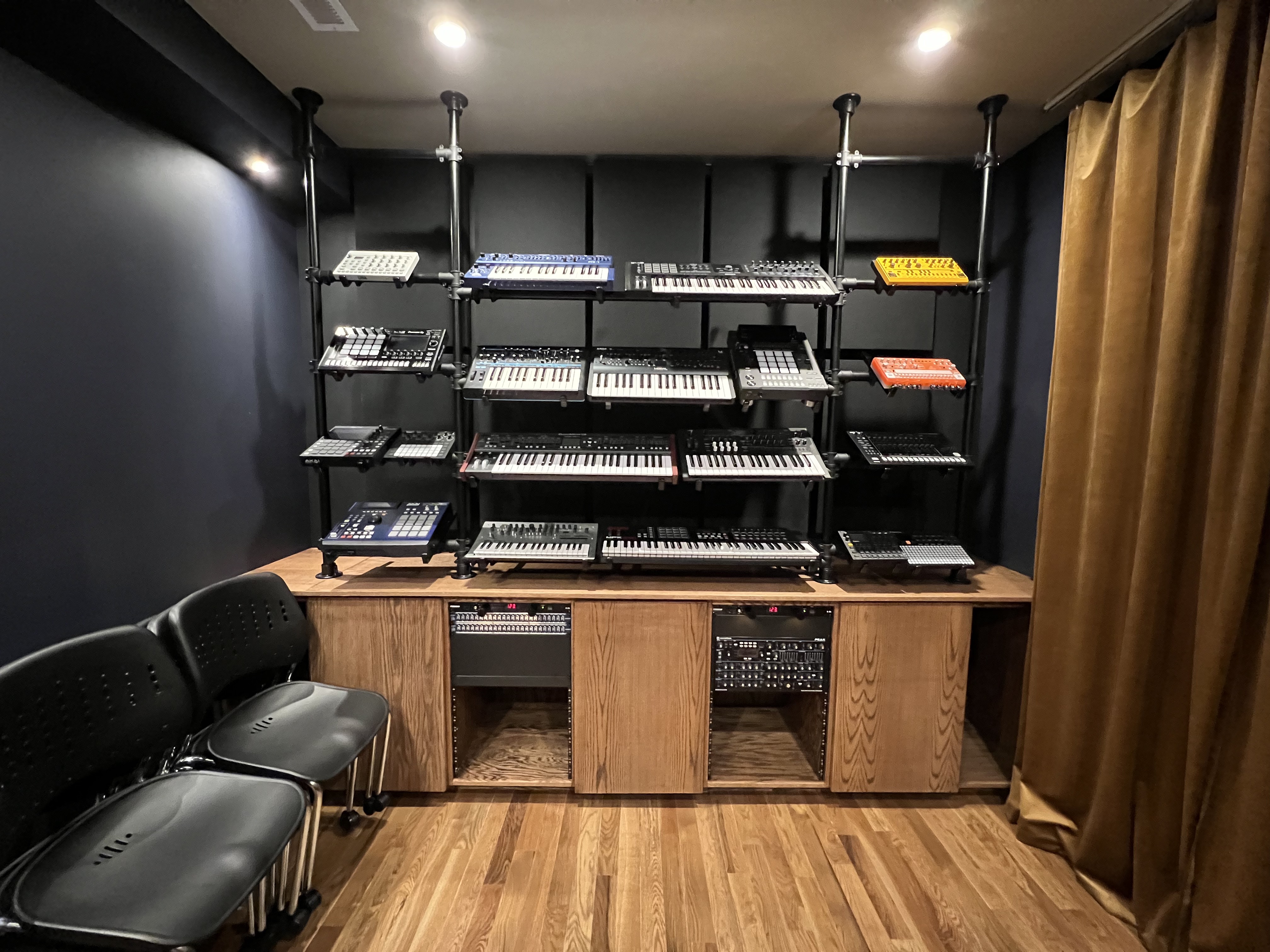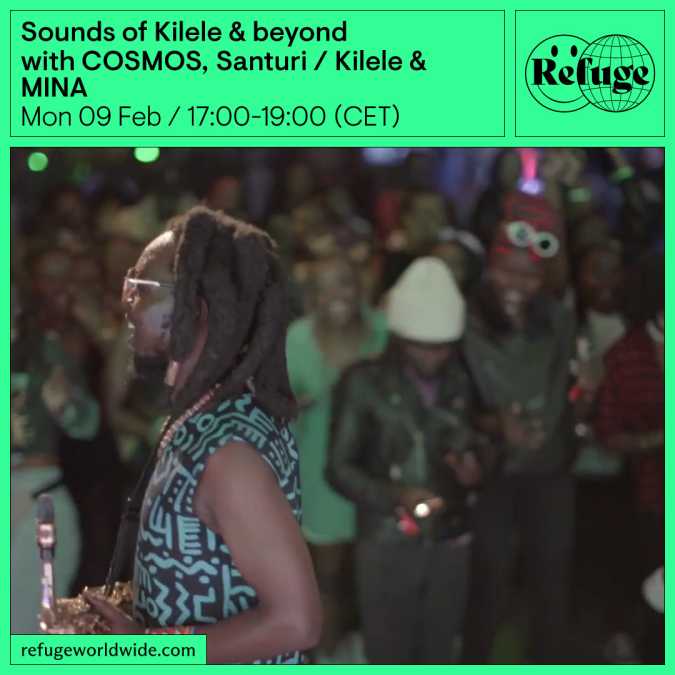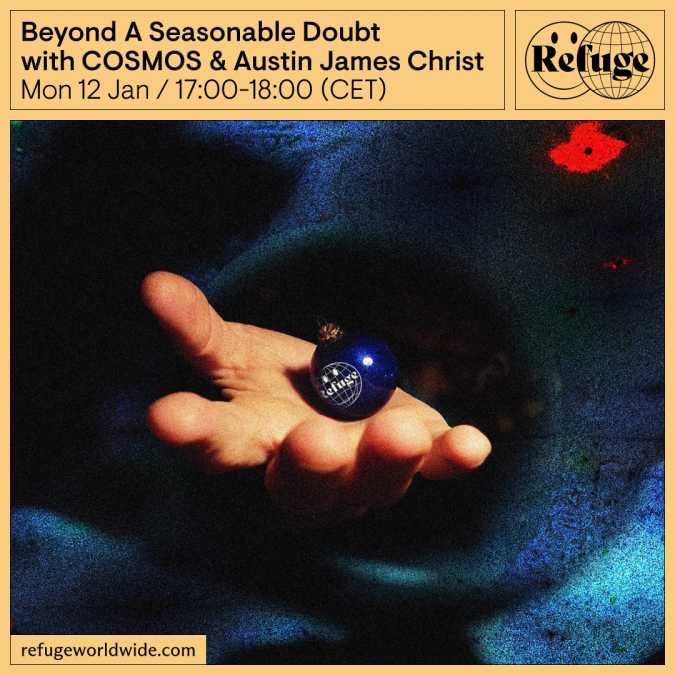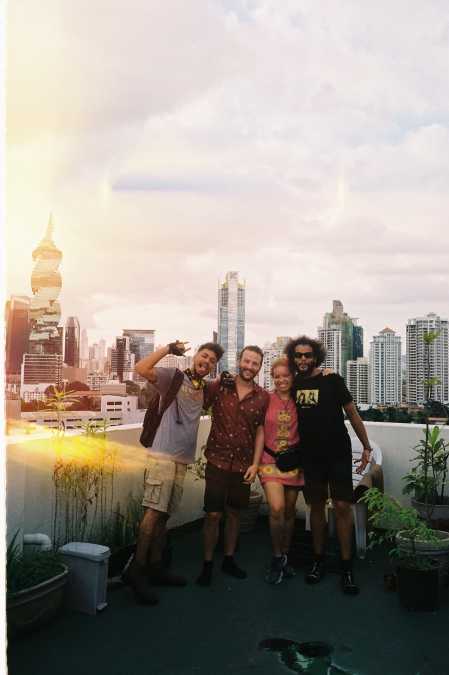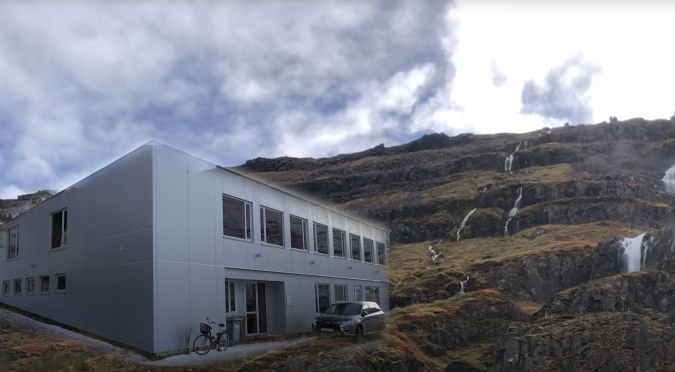COSMOS x Underground Music Academy announce their 2024 Embassy in Detroit, USA
A place to learn about the past, present, and future of dance music. With the Underground Music Academy, Detroit’s own Waajeed has created a utopian space for the city's aspiring musicians.
Among music fans, few places occupy a similar space in the collective imagination like Detroit. The birthplace of Motown and techno, and a stronghold for innovations in hip-hop, soul, garage rock, house and more, the Motor City has had its fair share of glorification. Waajeed and his team of kindred spirits, however, are less concerned with the 313's past, but the city’s bright future. An eclectic producer, DJ, and co-founder of Detroit rap renovators Slum Village, Waajeed is using his skills, resources and contacts to create a space for knowledge-sharing and community.
Shortly before the pandemic, the Underground Music Academy grew from an idealistic dream into a reality. Based on the legendary Berry Gordy Boulevard (named after Motown’s founder), UMA hosts workshops and educational programs, a studio, and space for people from around the globe to get together and collaborate. Now, we're most happy to announce UMA (Detroit, USA) as one of our COSMOS 2024 Embassies.
Here, Aaron Gonsher talks to Waajeed about UMA's singular vision and mission.
Interview by Aaron Gonsher
Photography by Evan Zott & Nicole Shackelford
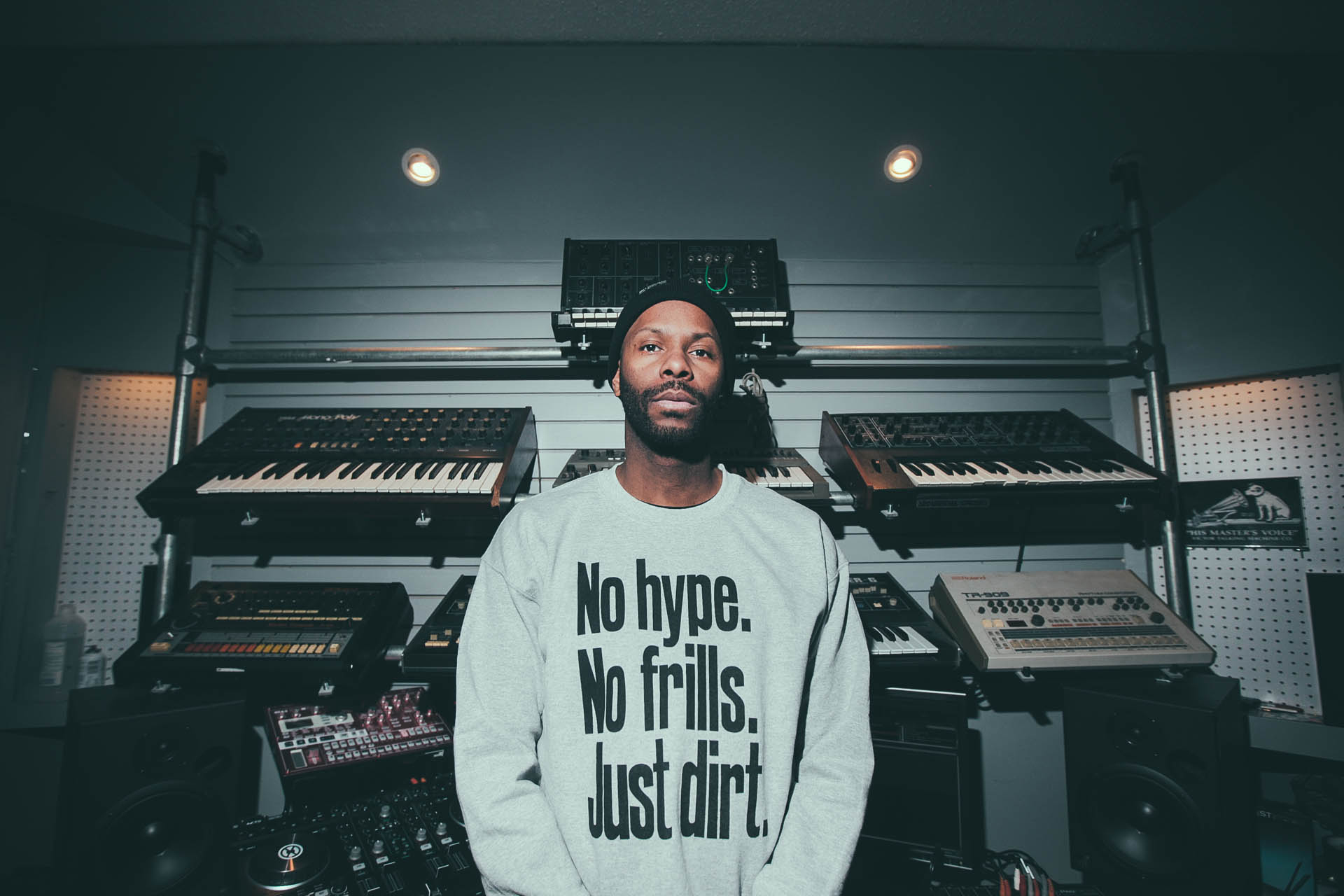
Let's start at the beginning. What is the Underground Music Academy and why does it exist?
Dance music, in my opinion, has been colonized. That's a quote that comes from Honey Dijon, from Chicago. UMA, in my opinion, is the answer to that statement. I'm the founder of Underground Music Academy. It really started just before the pandemic. Then I had the time to commit to it and it became the center point of my life. Our goal here, as my dad used to say when I was coming up, is to ‘put some paint where it ain’t’. We try to reposition at least our portion of the business. Teaching those that come inside of these doors, or that we connect with online, about the origins of dance music. Ultimately, we try to instill the seed in them to reconnect to the people who are typically unseen inside of this business.
Similar thing to hip-hop. Those kids didn't have access to dance at the savvy clubs. So they made their own shit. That’s how I see Underground Music Academy: we're forced to find kinship in places that we tend not to be invited to. This place is a result of many years of frustration, of seeing folks that step into positions or maintain positions inside of this business that have no connectivity towards what the shit was originated for. UMA created itself to empower people. And too often, I've seen the opposite. So the goal of this place is to be a counteraction to those movements out there.
When you talk about those goals, how do you want to achieve them practically? Because it's both a historical education and a vocational one, when it comes to production or DJing, along with the intellectual personal growth implied by the “Academy.”
It starts with the idea: let's get together for this one thing, which is to teach you how to DJ, or to teach you how to make music. Or to teach you how to create a way for yourself inside of the business. That's the starting point. But as the building blocks start, we inform you about the history of dance music, and where it can go. We inform you about opportunities to build yourself as an artist, to build this community or be a part of a community that has a greater vision towards what dance music can be. To have a greater level of connectivity.
And part of the way that we do that in addition to education is mentorship. You know, these are the people that you want to be thinking about, these are the people that you want to be moving for, as you get to these positions of privilege. Make this place more sustainable and really lift those who can't lift themselves.
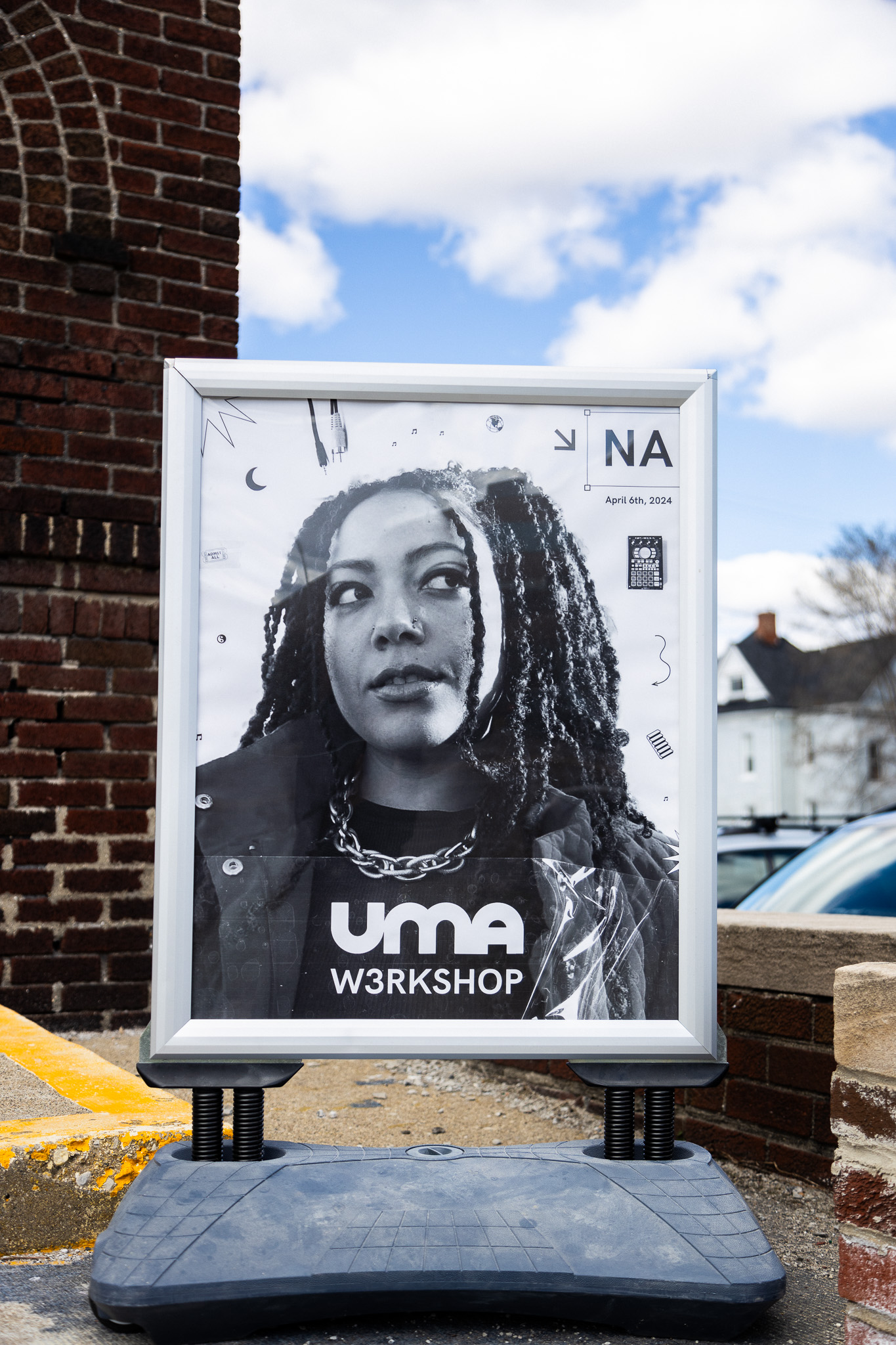
I know the location of UMA is symbolically significant. Can you talk about where UMA is in Detroit and how that feeds into this ideal of connectivity and community uplift that you’re describing?
Also on our block is Moodymann’s "Prince Palace". Almost directly across the street is Underground Resistance, which, for electronic music, is really the headquarters of Black independence, and uniqueness, and distribution, business strategies, community. Too many things to name. And just down the street on the corner is us, UMA. You really have the past, middle, and present.
Let's talk about that present. A lot has been said about the history of Detroit and its musical legacy, but people often use that as a way of excusing their ignorance of what's currently going on. What is your perception of Detroit's creative energy in electronic music and otherwise? What's exciting you?
That's kind of what excites me – the greater level of ignorance that our young people have towards our legacy. What attracts me is the fact they don't know, and to some degree they really don't give a fuck about our past. That's exciting because I do feel like if a certain amount of our youth knew more about it, then we would be speaking more in past tense. Similar to the person who’s like, “I used to be prom king. And now I’m where I’m at now.”
It's freeing.
Right. They have the same motivation. They see the results. They've heard about the results from their parents who played Motown music when they came up. They recognize that there's some signals inside of this city of people who are creating and innovating on an underground level, but in some cases they just can't put their finger on it. In their mind, dance music, particularly house and techno or maybe even electro to some degree, is a European creation. And I believe that in some ways it hurts us and in other ways, it benefits us. Because they’re not stuck in this idea of continuing the same story. They want to make their own stories. They want to tell their own truth. They want to connect to their own generation.
Know the past. Change the future.
Exactly. We don't try to make the next generation of techno producers. I think that in some ways that's a great idea, but it's also very limiting. It puts us in a position where we're not innovating. We're always talking about what we used to do and who we used to be, as opposed to who we could be and who we should be.
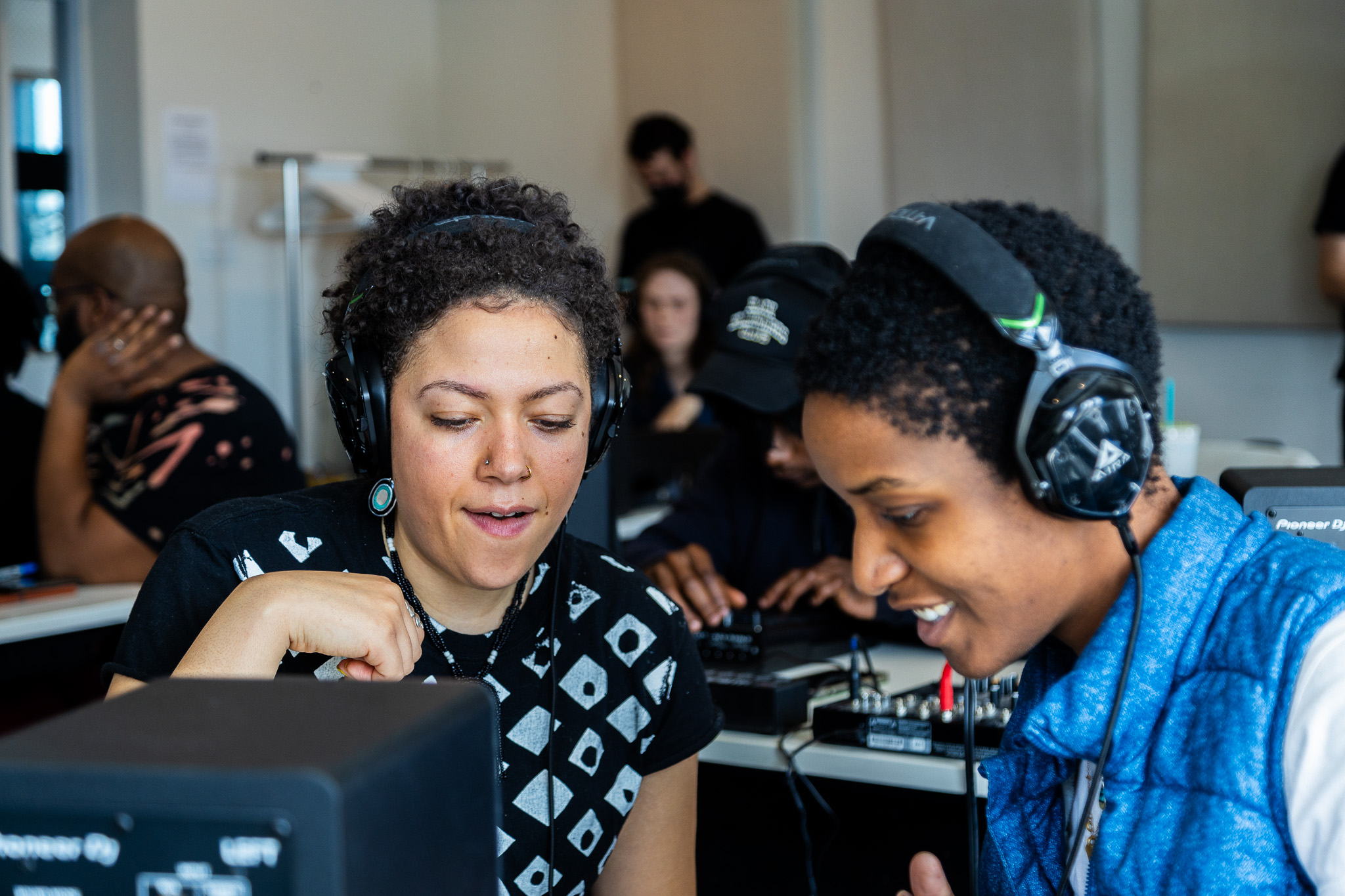
Do you find that there's a similar generation gap in terms of how the city of Detroit affects these up-and-coming artists creatively? Detroit itself is a very different place than it was in 1975, 1980, 1990.
Well, some things change and some things stay the same. We still live in America where the poor people are almost made to look like… Y'know, it’s victim blaming, the ultimate level of victim blaming.
I believe that the forefathers of techno and house – and I definitely know as a forefather of Detroit hip-hop – were dreaming about a place where they don't hang Black people. Or dreaming about a place that's somewhere out in the stars. That's always been part of the motivation. The common goal is the same: to create some level of a utopia, somewhere out there in the world.
That pressure falls on primarily poor Black people. That may not be the same in Atlanta, or it may not be the same in Los Angeles. It may not be the same in Chicago. And it's that urgency, that switch that we look to flip inside of our students. The most at-risk students or the people that are out there in the street, those are the students that we actually want to come into our space. Because they have the ability to understand that this level of passion that you have for survival can be applied to being creative and innovative. Making opportunities not just for you, but for your family and for your city and benefiting the world as a whole.
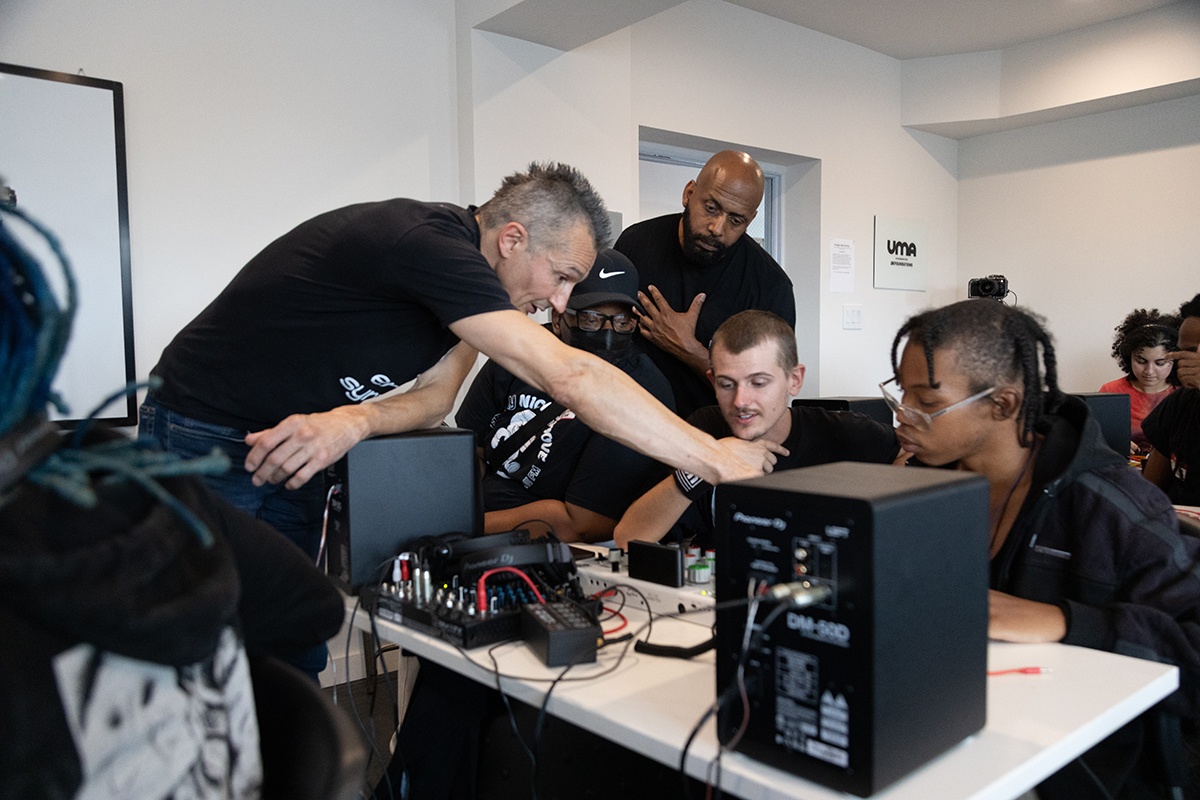
When those people do come into the space, what do they experience? Can you talk about some of the courses and workshops that you've done?
I'll start with where we are currently.
We’ve been using these opportunities to provide free workshops for our community and those online that choose to join us. We share it for our YouTube folks. We've been using these opportunities as ways to not just engage our public, but figure out what our public needs. I saw a really dope documentary about Woodstock not long ago on HBO, and they talked about how they created the last Woodstock, which turned out to be a fucking catastrophe. And they were asking some of the youth or the people that actually came to this thing, and the young people who came to this, this modern Woodstock, they expressed their disdain for it. Because it was basically older people's ideas of what younger people should be experiencing. And for me, that was a trigger to maybe do less talking and more listening.
There's some level of guidance, there's some level of curation, of course. There's some benchmarks that we need to hit, and that we need to be mindful of inside of the space. But our main goal is just to really listen. We’ve basically been doing a free workshop almost every month. Normally it's based off feedback from past workshops, people who are coming on a regular basis. But a lot of it is based off relationships or people who are in town.
For Movement, we do three workshops a day for three days. Friday, Saturday, and Sunday, we have one-hour workshops starting at noon, and they go all the way up to 4PM. And again, a lot of these artists that we've asked are based on feedback, based on people's availability, based on providing a wider range of subjects for people to be able to tap into.
For example, we've got Martyn joining us this year, which I'm really excited about. Not only is he a great teacher, but he's an innovator. HI-TECH is joining us to teach a workshop about collaboration and production. The Am is joining us, Tammy Lakkis. In terms of the people that are providing workshops. I'm super excited about the diversity that they offer. The different points that they make, the different careers that they've had, different challenges.
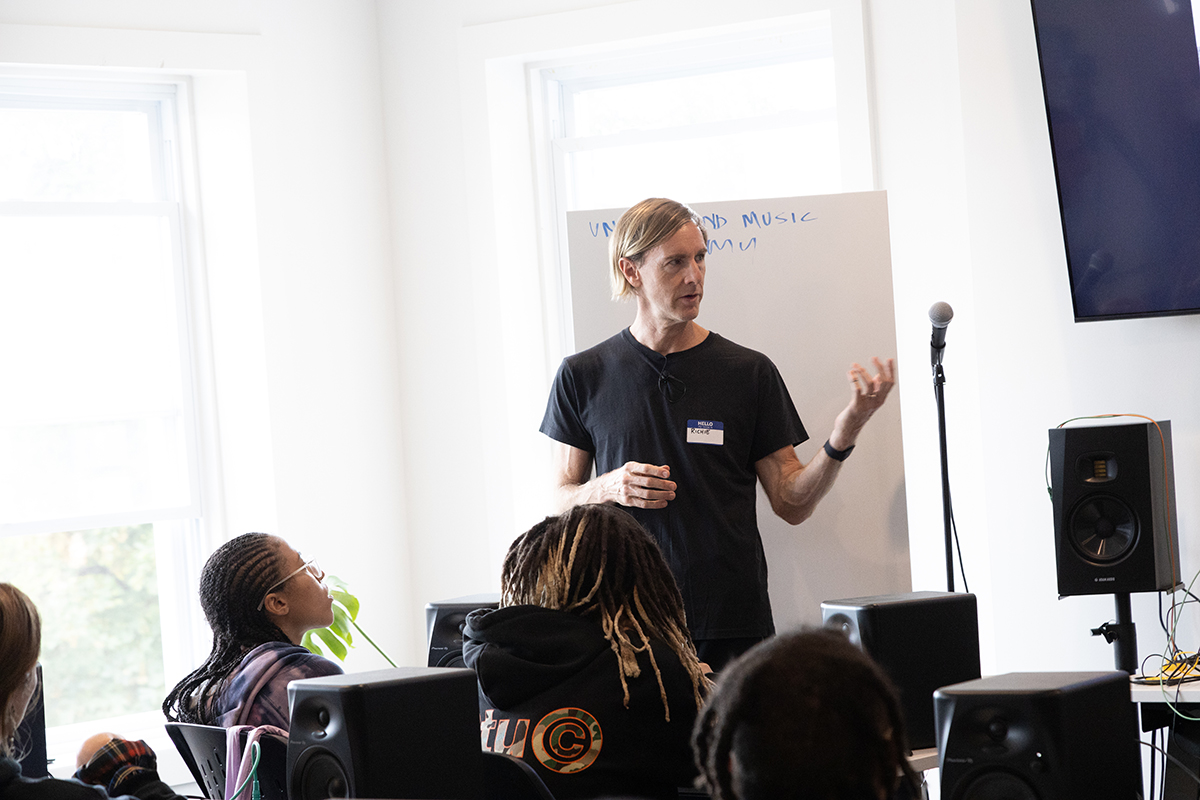
I think it’s highly likely some freaks and weirdos who have been out all night on Friday will probably show up to the Saturday stuff this year.
Highly likely, they probably roll in late. But you know, we’ll have coffee for them.
We're building and focusing these workshops on listening and compiling tools that will shape some level of curriculum or courses that we can offer to actually give folks what they need. Our first session, first semester, was with the video game developers 2K. We partnered with them and a small studio in Atlanta, Studio Express, to create a free ten-week course where we would teach our students how to produce music for video games. Most of the students already had a high level experience making music. We broke them into three groups of four, where they were forced to create as partners. We had twelve folks from all over the world – some from Detroit, from various places domestically, a student from Mexico, from London. They learned how to connect and not just make music. Learned about the paperwork, how to do publishing. We had different lecturers from all over the globe, and for the last four weeks they compiled this music, all the while getting feedback from 2K. And at the end of the course, 2K picked two tracks that are going to land on an NBA game in 2025. Those students were able to get a full licensing fee for the placement in the game.
I have a great quote of yours from your Blacktronika interview with King Britt: “UMA is certainly a result of my mentor Amp Fiddler, by allowing us to come into his basement, use his equipment, and teach us the streets was not the way to go. The jail was full of young boys like us and he fought for us, gave us space, gave us a dojo to come and apply this competitive energy that we had and make it manifest into something new, something beautiful. Not just to change our lives, but change our family's lives. And I'm building Underground Music Academy to do that, to do the same for someone else.” Why was Amp so important for you? What are the lessons and experiences from your time with him that you feel like you really want and need to see reflected in your work with Underground Music Academy?
It's too many things to name. There are few people like that in life.
You know, I’m close to 50. There are very few people that you meet that are charismatic, that are talented, that just have a great, incredible spirit, like a father. And it manifested not only with the five of us that were in his basement that became Slum Village. There was tons of people when I went to his funeral. Man, it was almost mind-blowing how many people he touched, and how many people spoke so well about him. We weren't alone. If we can even mirror 10% of that in terms of his connectivity, that powerful force, direct mentorship… And not just giving information, but actually living what he's talking about. Not only the top-down shit. You know what I'm saying? Like, if you’re going to a university, you got somebody with all these fucking accolades talking to you, it’s top-down.
Because you never have all the answers. You never can figure it all out. And Amp taught us that. We’re fully prepared to make some of those mistakes here. We don't have all the answers, we want to learn with our students. It really does take a village – no pun intended.
There’s a legacy. You have one as an artist, as a producer, as a DJ. Amp had a legacy as an artist, producer, performer, educator. But it really does feel like this legacy of mentorship and education, and the desire to see the community of creative people in Detroit pulled up, is something that lasts longer than any single record or gig. Because that infiltrates people’s lives.
Absolutely. And in the next couple of weeks, we start enrollment for our second course.
